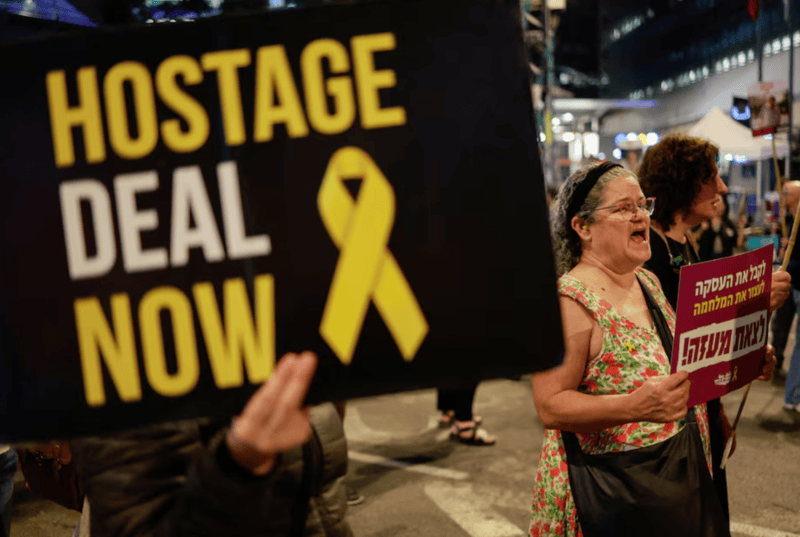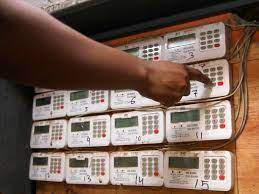Legal threats close in on Israeli PM Benjamin Netanyahu

Netanyahu has denounced the court's decision as antisemitic and denied charges that he and Gallant targeted Gazan civilians and deliberately starved them.
Prime Minister Benjamin Netanyahu faces legal perils at home and abroad that point to a turbulent future for the Israeli leader and could influence the wars in Gaza and Lebanon, analysts and officials say.
The International Criminal Court (ICC) stunned Israel on Thursday by issuing arrest warrants for Netanyahu and his former defence chief Yoav Gallant for alleged war crimes and crimes against humanity in the 13-month-old Gaza conflict.
More To Read
- ICC ends 13-year probe into Kenya’s post-election violence as two fugitives remain at large
- Global arms sales hit Sh87.8 trillion in 2024 amid wars in Ukraine and Gaza
- Sexual violence driving mass flight from Sudan to South Sudan: What you need to know
- ICC urged to probe Tanzania over post-election civilian killings
- Gaza: Two children killed every day during fragile ceasefire, says UNICEF
- Kenya’s Phoebe Okowa elected to serve as judge at International Court of Justice
The bombshell came less than two weeks before Netanyahu is due to testify in a corruption trial that has dogged him for years and could end his political career if he is found guilty. He has denied any wrongdoing.
While the domestic bribery trial has polarised public opinion, the prime minister has received widespread support from across the political spectrum following the ICC move, giving him a boost in troubled times.
Netanyahu has denounced the court's decision as antisemitic and denied charges that he and Gallant targeted Gazan civilians and deliberately starved them.
"Israelis get really annoyed if they think the world is against them and rally around their leader, even if he has faced a lot of criticism," said Yonatan Freeman, an international relations expert at the Hebrew University of Jerusalem.
"So anyone expecting that the ICC ruling will end this government, and what they see as a flawed (war) policy, is going to get the opposite," he added.
A senior diplomat said one initial consequence was that Israel might be less likely to reach a rapid ceasefire with Hezbollah in Lebanon or secure a deal to bring back hostages still held by Hamas in Gaza.
"This terrible decision has ... badly harmed the chances of a deal in Lebanon and future negotiations on the issue of the hostages," said Ofir Akunis, Israel's consul general in New York.
"Terrible damage has been done because these organisations like Hezbollah and Hamas ... have received backing from the ICC and thus they are likely to make the price higher because they have the support of the ICC," he told Reuters.
While Hamas welcomed the ICC decision, there has been no indication that either it or Hezbollah see this as a chance to put pressure on Israel, which has inflicted huge losses on both groups over the past year, as well as on civilian populations.
In the dock
The ICC warrants highlight the disconnect between the way the war is viewed here and how it is seen by many abroad, with Israelis focused on their own losses and convinced the nation's army has sought to minimise civilian casualties.
Michael Oren, a former Israeli ambassador to the United States, said the ICC move would likely harden resolve and give the war cabinet licence to hit Gaza and Lebanon harder still.
"There's a strong strand of Israeli feeling that runs deep, which says 'if we're being condemned for what we are doing, we might just as well go full gas'," he told Reuters.
While Netanyahu has received wide support at home over the ICC action, the same is not true of the domestic graft case, where he is accused of bribery, breach of trust and fraud.
The trial opened in 2020 and Netanyahu is finally scheduled to take the stand next month after the court rejected his latest request to delay testimony on the grounds that he had been too busy overseeing the war to prepare his defence.
He was due to give evidence last year but the date was put back because of the war. His critics have accused him of prolonging the Gaza conflict to delay judgment day and remain in power, which he denies.
The prime minister has refused advice from the state attorney general to set up an independent commission into what went wrong and Israel's subsequent conduct of the war.
He is instead looking to establish an inquiry made up only of politicians, which critics say would not provide the sort of accountability demanded by the ICC.
Popular Israeli daily Yedioth Ahronoth said the failure to order an independent investigation had prodded the ICC into action. "Netanyahu preferred to take the risk of arrest warrants, just as long as he did not have to form such a commission," it wrote on Friday.
Arrest threat
The prime minister faces a difficult future living under the shadow of an ICC warrant, joining the ranks of only a few leaders to have suffered similar humiliation, including Libya's Muammar Gaddafi and Serbia's Slobodan Milosevic.
It also means he risks arrest if he travels to any of the court's 124 signatory states, including most of Europe.
One place he can safely visit is the United States, which is not a member of the ICC, and Israeli leaders hope US President-elect Donald Trump will bring pressure to bear by imposing sanctions on ICC officials.
Mike Waltz, Trump's nominee for national security advisor, has already promised tough action: "You can expect a strong response to the antisemitic bias of the ICC & UN come January,” he wrote on X on Friday.
In the meantime, Israeli officials are talking to their counterparts in Western capitals, urging them to ignore the arrest warrants, as Hungary has already promised to do.
However, the charges are not going to disappear soon, if at all, meaning fellow leaders will be increasingly reluctant to have relations with Netanyahu, said Yuval Shany, a senior fellow at the Israel Democracy Institute.
"In a very direct sense, there is going to be more isolation for the Israeli state going forward," he told Reuters.
Top Stories Today











































